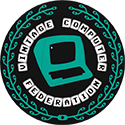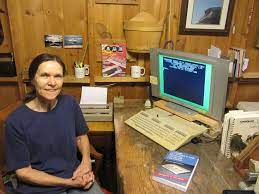
One of the themes for Vintage Computer Festival East is “Women in Computing”. My Idea for this theme started with one woman: Margaret Morabito. She wrote a book titled “Vintage Commodore 128 Personal Computer Handbook” published in 2019. More recently she collaborated on a book with one of the creators of the Commodore 128 computer, Bil Herd. After they both talked about their book during VCF West in 2021 I was curious to know more about her. Through my research I discovered that she was a technical editor for RUN magazine for many years. RUN Magazine was published from January 1984 until December 1992. The magazine contained articles about Commodore 8-bit home computers and peripherals as well as reviews on available software packages. In addition, every issue featured several type-in programs written in BASIC and/or machine language. The magazine’s name came from the BASIC command “RUN”, which started execution of the computer’s program, presumably typed in from the magazine.
Even though I had subscribed to that magazine years ago, I had never heard of her. My original thought was to create a theme around authors of magazines, books and other publications from the vintage computer era. I called to ask her to be a speaker for our show and find out more about her. I learned that she designed and ran the Tutoring Center, the Q-Link Community College and Parent-Teacher Information Exchange. Q-Link was an online service for the Commodore 64 back in the 1980’s when most people connected to each other and to online services through telephone modems. She later ran the school on other services such as GEnie, Delphi, CompuServe, AppleLink, AOL, and PCLink. These were early online services back in the 1980’s and 1990’s. Most are defunct, but some like AOL continue to this day. Amazed at her experience, I thought that maybe there were other women in vintage computing besides the “big names” from history that I had read about like Ada Lovelace, Grace Hopper and the ENIAC programmers.
I got another suggestion: Burger Becky. I’m sure that many of you don’t recognize that name. At first I thought to myself, “That’s a strange name!” I admit that I 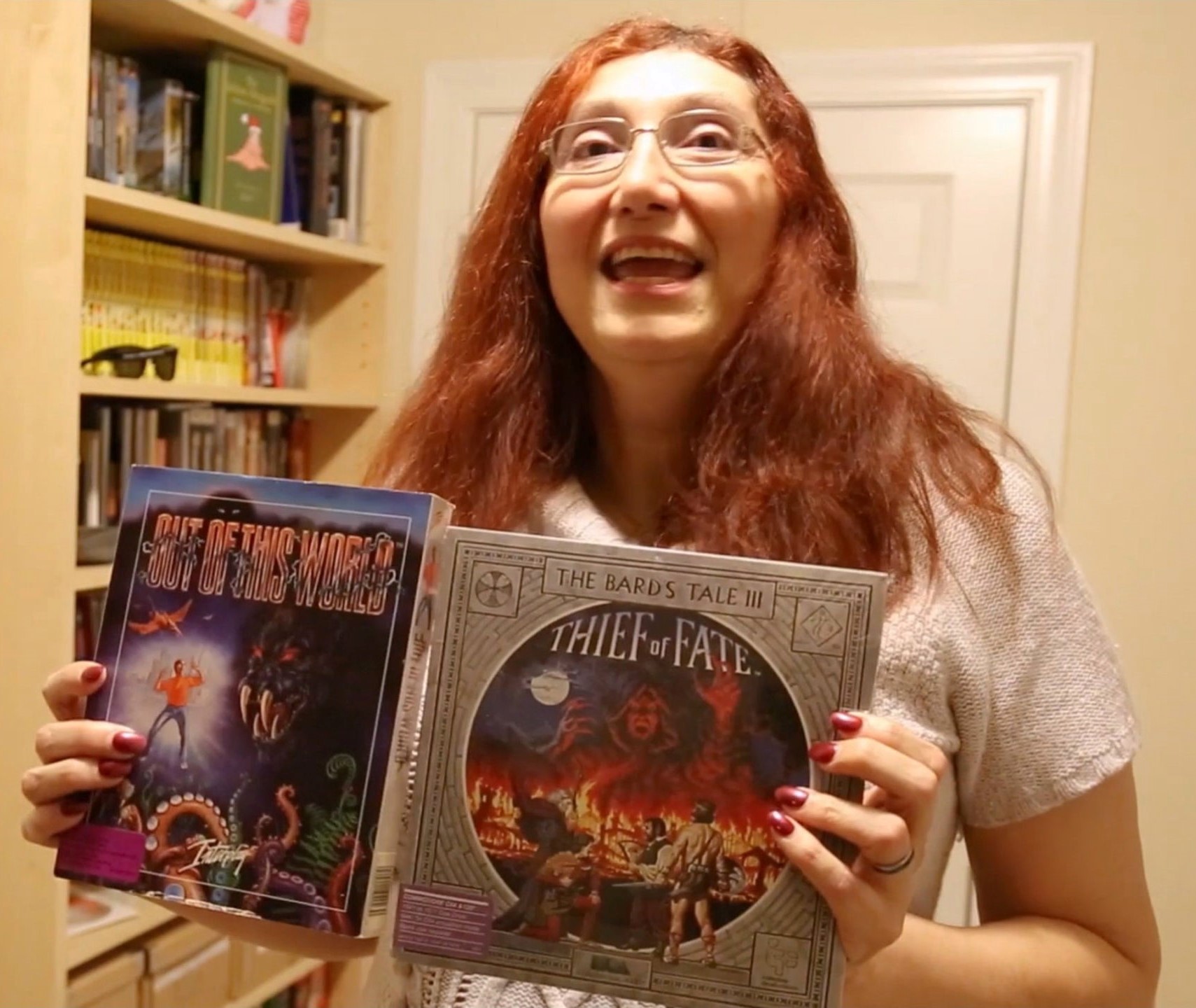 neither recognized it nor knew about her accomplishments. Apparently she was the first video game champion of Space Invaders in 1980, but that’s only the beginning of her story. As lead programmer she created the games Wasteland, The Bard’s Tale, Out of This World, and the Mac OS and 3DO ports of Wolfenstein 3D. She was a founding member of video game companies Interplay Productions, Logicware, Contraband Entertainment, and Olde Sküül. She has been chief executive officer for Olde Sküül since 2013. She has quite an interesting history that I had never known. She will be coming to VCF East 2022 in person on April 22 for a technical talk on Apple II programming and on April 24 for a talk about her interesting story. If you come to our show, then you will find out how she got the nickname “Burger Becky”.
neither recognized it nor knew about her accomplishments. Apparently she was the first video game champion of Space Invaders in 1980, but that’s only the beginning of her story. As lead programmer she created the games Wasteland, The Bard’s Tale, Out of This World, and the Mac OS and 3DO ports of Wolfenstein 3D. She was a founding member of video game companies Interplay Productions, Logicware, Contraband Entertainment, and Olde Sküül. She has been chief executive officer for Olde Sküül since 2013. She has quite an interesting history that I had never known. She will be coming to VCF East 2022 in person on April 22 for a technical talk on Apple II programming and on April 24 for a talk about her interesting story. If you come to our show, then you will find out how she got the nickname “Burger Becky”.
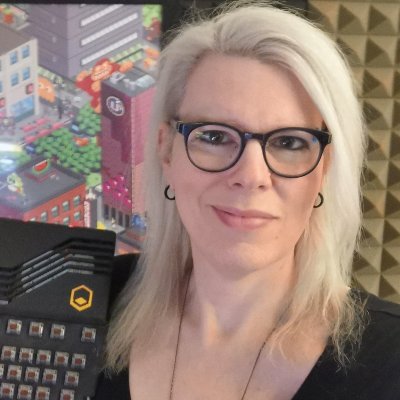 Stefany Allaire will be back (virtually) to tell about her modern retro devices called C256 Foenix. She is an accomplished entrepreneur and engineer who owns a business creating and selling modern implementations of computers with vintage computer flavoring. She has spoken at previous Vintage Computer Festivals, but this time with two new topics.
Stefany Allaire will be back (virtually) to tell about her modern retro devices called C256 Foenix. She is an accomplished entrepreneur and engineer who owns a business creating and selling modern implementations of computers with vintage computer flavoring. She has spoken at previous Vintage Computer Festivals, but this time with two new topics.
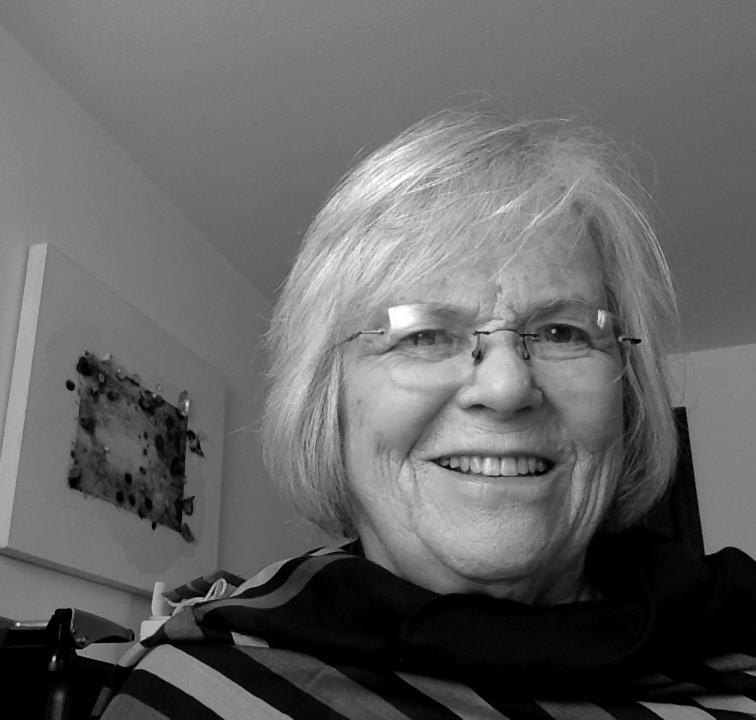 Cynthia Solomon – Some of us remember programming the turtle graphics found in LOGO in elementary, middle school or high school back in the 1980’s and 1990’s. My first experience with computer programming was with LOGO on an Apple //e in middle school. Cynthia will be appearing virtually at VCF East and has an amazing story to tell!
Cynthia Solomon – Some of us remember programming the turtle graphics found in LOGO in elementary, middle school or high school back in the 1980’s and 1990’s. My first experience with computer programming was with LOGO on an Apple //e in middle school. Cynthia will be appearing virtually at VCF East and has an amazing story to tell!
Her focus has been on personally expressive and intriguing learning environments for children. In 1966 she began collaborating with Seymour Papert on developing Logo, the first programming language designed for children. Papert and she wrote a paper, “Twenty things to do with a computer,” describing a collection of possible projects motivated by our work with children; it included turtle graphics and music projects. She has continued creating and advocating for computer-based projects and ways for young people to design their own projects. Currently she is exploring Logo’s turtle geometry through TurtleStitch and computerized embroidery machines. In 2016 she was awarded both the National Center for Women & Information Technology Pioneer Award and the Constructionism Lifetime Achievement Award. She is also the recipient of the 2019 FabLearn Lifetime Achievement Award.
Current books/papers
Twenty things to do with a computer (1971) in Twenty Things to Do with a Computer: Forward 50 (2021)
Inventive Minds: Marvin Minsky on Education (2019), co-editor. https://direct.mit.edu/books/book/4519/Inventive-MindsMarvin-Minsky-on-Education
History of Logo (2020), co-author, https://dl.acm.org/doi/abs/10.1145/3386329.
TurtleStitching: At Least Twenty Things to Do with a Computer and a Computerized Embroidery Machine (2022), co-author, at https://citejournal.org/volume-22/issue-1-22/seminal-articles/turtlestitching-at-least-twenty-things-to-do-with-a-computer-and-a-computerized-embroidery-machine/
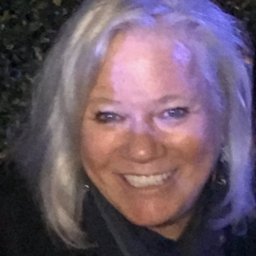
Bonnie Norman will tell us about her Lasertrak Flight Planning system which provided CDs (Compact Discs) of data for flight navigation in U.S. military jets. Lasertrak was a box containing a printer & a CD-ROM drive and was the same size as a pilot’s chart case (so it would fit in the plane). It was one of the first CD-ROM databases, updated monthly with navigation data. Part of her story will be about famous people that she knew including Evi Nemeth, John Atanasoff IV, and Donald Ervin Knuth.
Kathy Kleiman, a pioneering attorney, programmer and data security auditor, is a historian of the 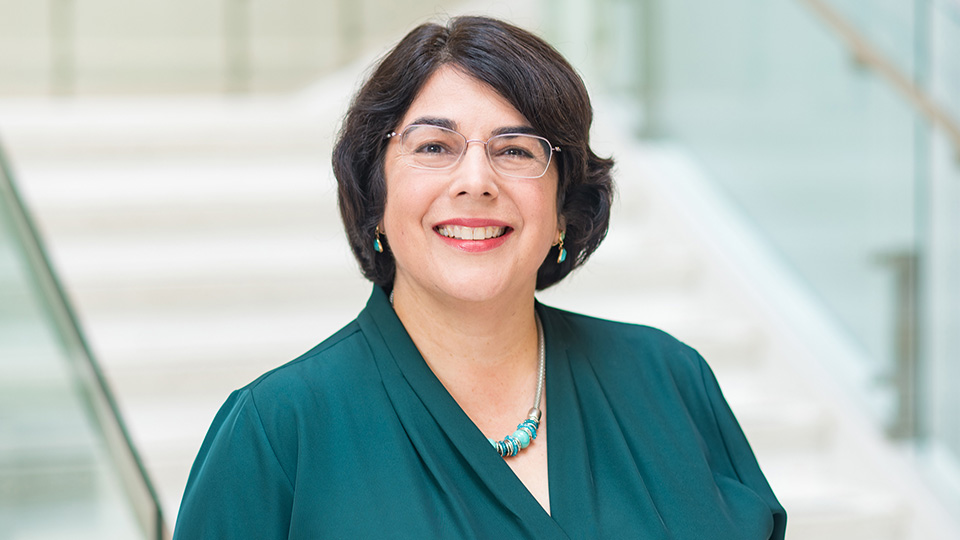 ENIAC programmers. She co-founded ICANN’s Noncommercial Users Constituency in 1998. As an attorney she founded one of the first Internet Law practices. After attending ENIAC’s 40th anniversary and meeting the ENIAC programmers, Kleiman felt compelled to tell the untold story of the six women who programmed ENIAC, the first all-electronic, programmable computer; thus, she founded the ENIAC Programmers Project. She is working on a documentary about these women and will be showing part of this documentary at VCF East.
ENIAC programmers. She co-founded ICANN’s Noncommercial Users Constituency in 1998. As an attorney she founded one of the first Internet Law practices. After attending ENIAC’s 40th anniversary and meeting the ENIAC programmers, Kleiman felt compelled to tell the untold story of the six women who programmed ENIAC, the first all-electronic, programmable computer; thus, she founded the ENIAC Programmers Project. She is working on a documentary about these women and will be showing part of this documentary at VCF East.
Valerie See worked at Tandy / Radio Shack on their computer line from 1984 – 1994, starting as a field service representative in upstate New York, and ending up as the manager of Computer Support (Tech Support) at Tandy headquarters in Fort Worth. In this talk, she’ll share memories of her time at Tandy / Radio Shack, running the gamut from sharing details of the publications, software, and hardware that Tech Support produced, to stories from the trenches working on Tandy line computers in the field and at Tech Support. In this 10 year period, Tandy computers moved from the Z80A-based Model I and Model II to 80386 based systems like the Model 4000, and even the first licensed non-IBM microchannel system, the Model 5000.
Women have been involved with computing as far back as Ada Lovelace. We also know about Grace Hopper, and of course the “computers” (programmers) of the ENIAC. Many women who worked in computers have often been left out of history books, their accomplishments little known or highlighted. Through my research and from the suggestions from other people I have discovered fantastic figures in vintage computer history. I would have invited them regardless of whether they were women or not. I have found that deliberately looking for women has helped me to discover otherwise unknown figures of vintage computer history, both men and women alike.
I hope that you will join us at Vintage Computer Festival East which takes place during three days: April 22, 23 and 24 2022 at InfoAge Science and History Museums. This will be our biggest show yet with awesome speakers, exhibits and classes. This is a rare opportunity to see many of these speakers in person. For more information on the show, please visit: https://vcfed.org/wp/events/vintage-computer-festival-east/
